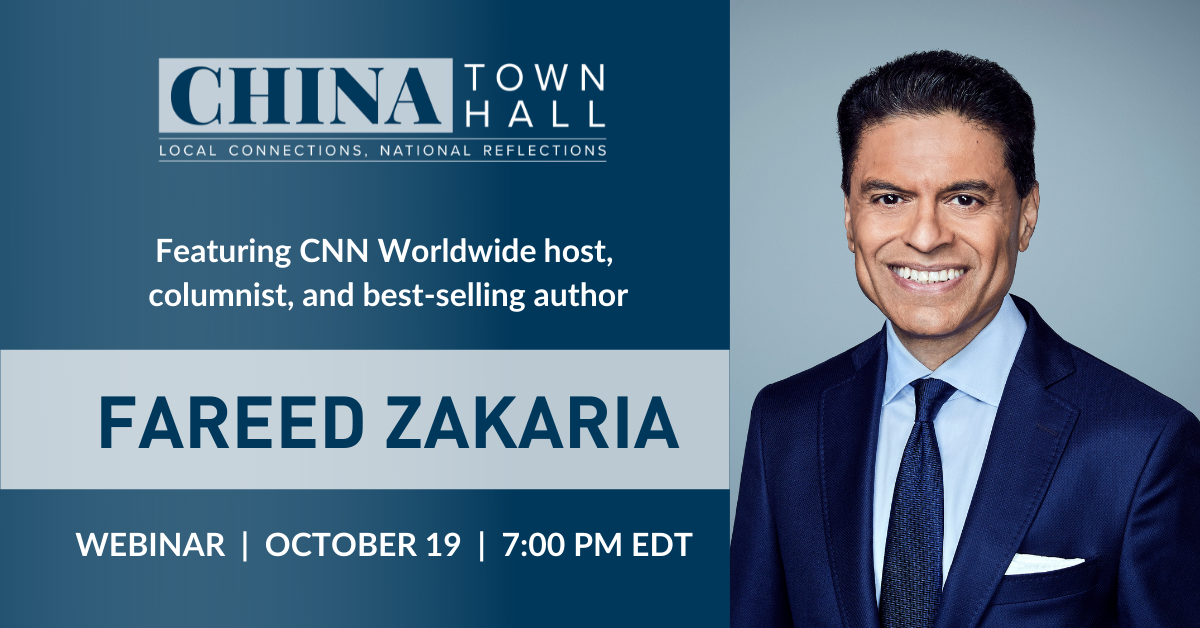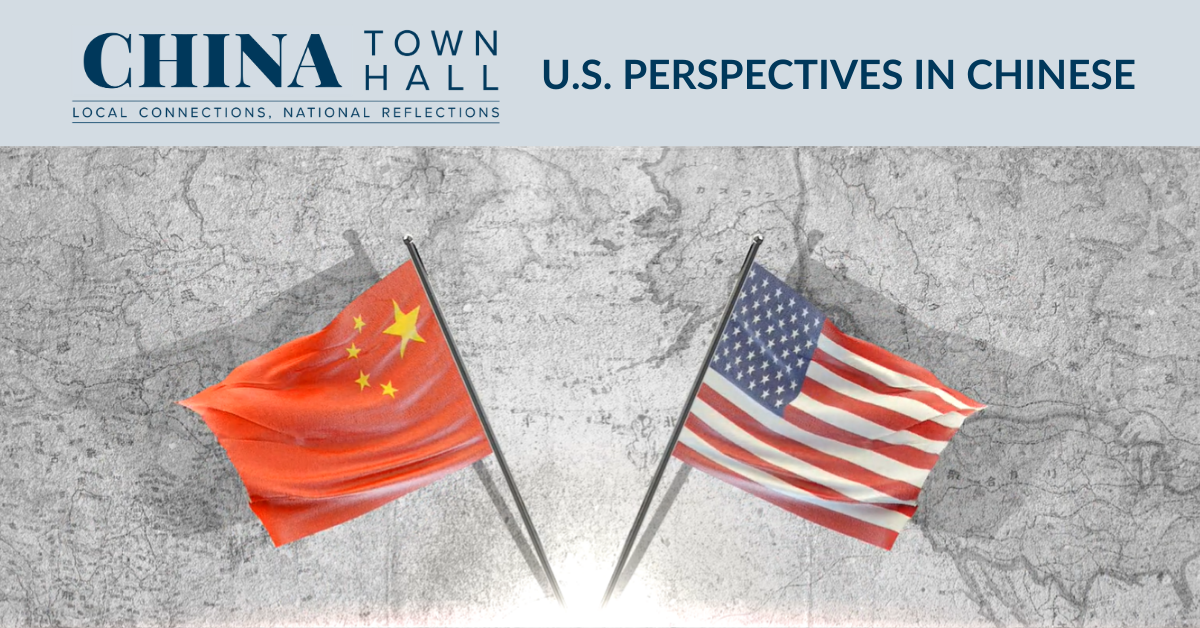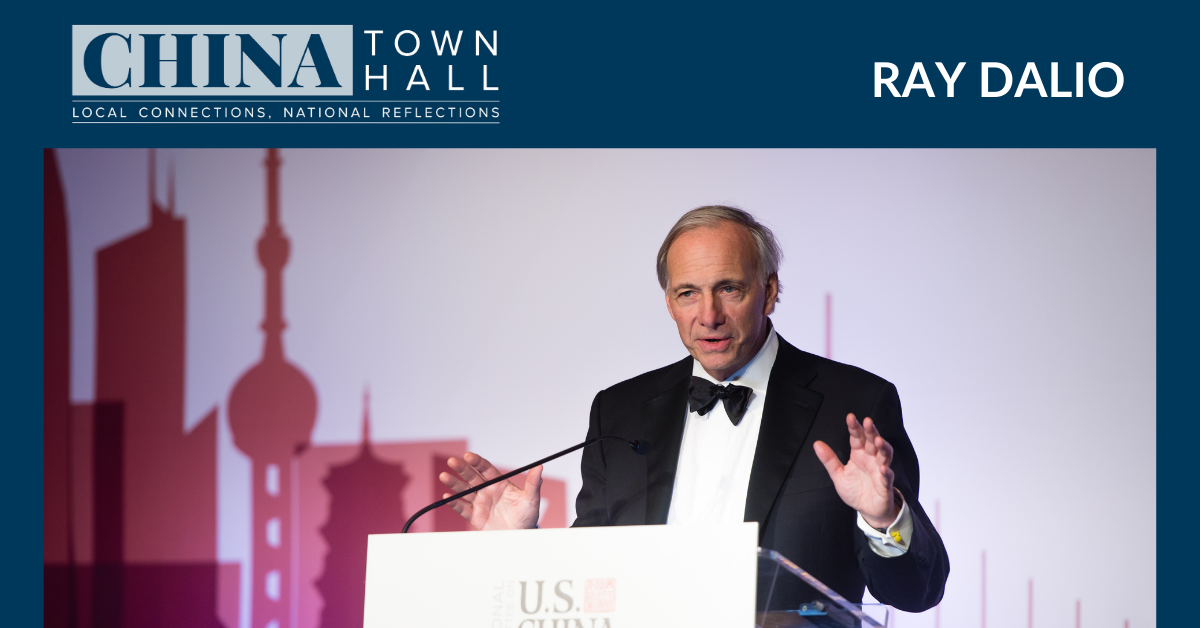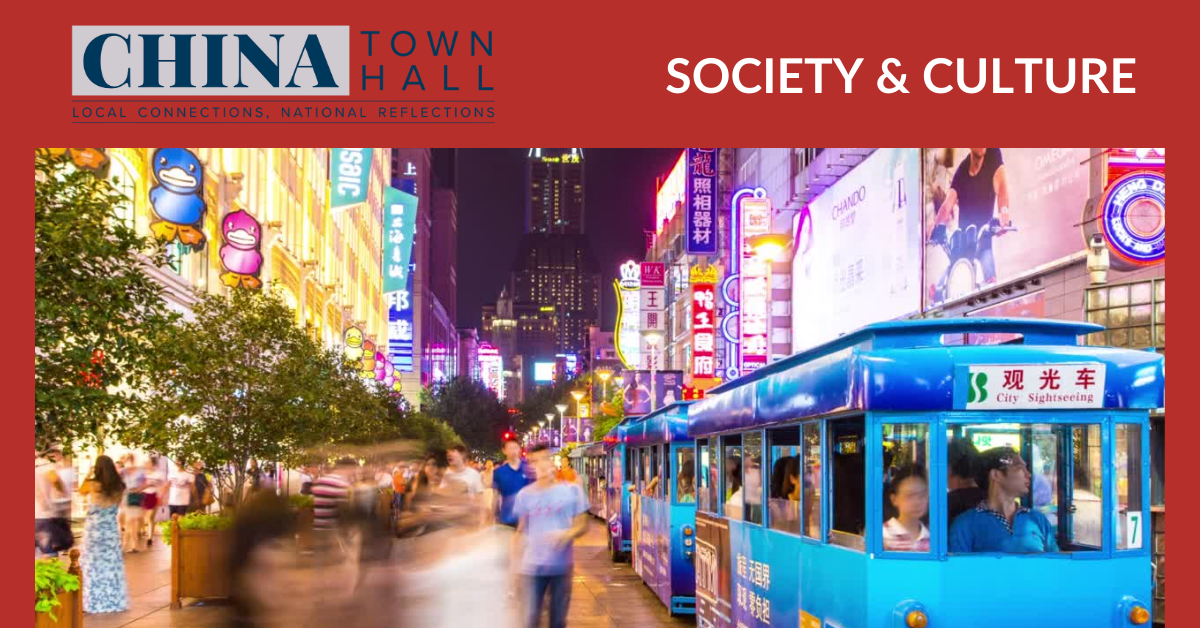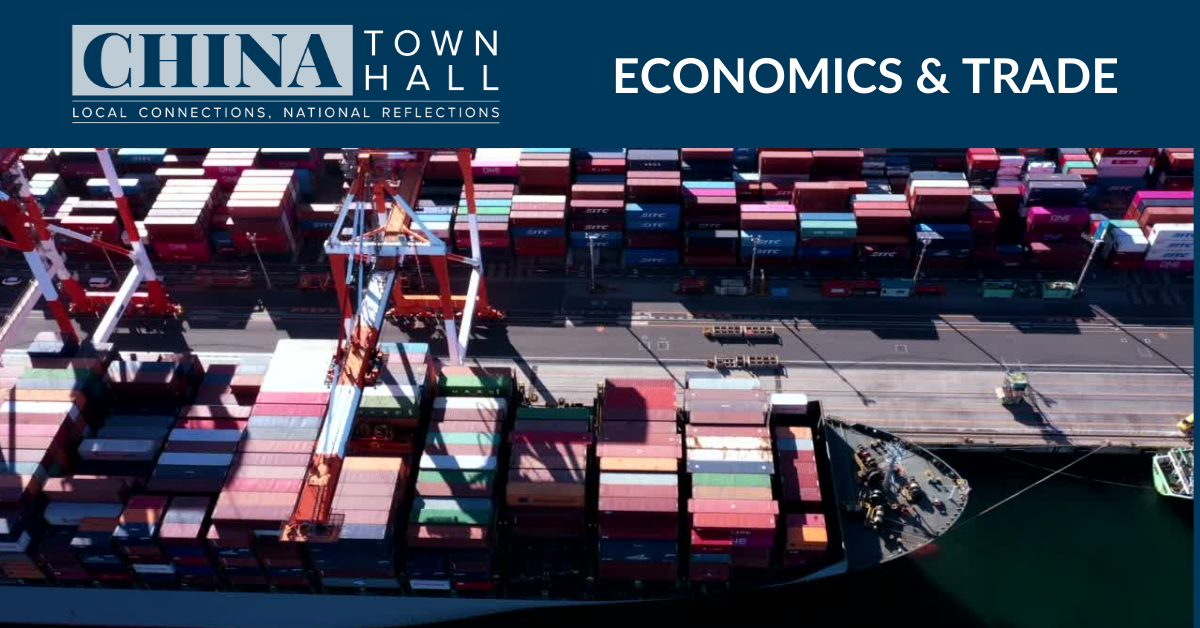CNN host and best-selling author Fareed Zakaria was the featured speaker at CHINA Town Hall 2021, a national conversation on how the U.S.-China relationship affects our cities, towns, and communities.
In a Chinese-language conversation, American experts on China Robert Daly, June Mei, and Matt Sheehan share insights about how Sino-American relations have affected the lives of Americans, how perceptions of China are changing as a result, and how both societies can learn to have a more realistic and nuanced understanding of the other.
Renowned investor, philanthropist, and New York Times best-selling author Ray Dalio discusses today's most important issues, and the critical roles the United States and China play in an era of rapid global change.
Explore the fascinating role that sports, food, and film play in the U.S.-China relationship: MLB China baseball operations manager Raymond Chang, Forbes 30 Under 30 restaurateur Lucas Sin, and film producer Janet Yang examine how aspects of our shared humanity can forge unique ties during times of political tensions, and how these rich intersections enhance American and Chinese society.
As trade tensions, political frictions, and COVID-19 fuel growing uncertainties in the highly interdependent U.S.-China economic relationship, a conversation among American and Chinese experts Amy Celico, Huang Yiping, and Andy Rothman examine current trade issues, opportunities for post-COVID economic growth, and prospects for the future of Sino-American economic ties.
As the United States and China face an increasing array of global issues, cooperation and coordination between the world's two great powers will be essential. Margaret Hamburg, Ryan Hass, and Angel Hsu examine this dynamic from the perspectives of climate change and global health, as both countries address the challenges and opportunities of the 21st century.
